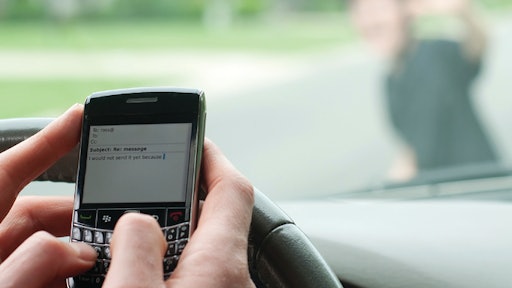
Recently, I was talking to some contractors about cell phone use. Nearly every one of them admitted they conduct business while on the road using their cell phone. Most of them acknowledged their crew leaders and supervisors do the same thing. They seemed a little put off by my suggestion that they could be facing substantial liability.
Beginning about 10 years ago, plaintiffs lawyers started filing lawsuits seeking damages for accidents caused by drivers using cell phones. Creative lawyers started going after the driver's employer — and they hit the jackpot. In several cases, juries have ruled against employers and awarded tens of millions of dollars to victims injured by drivers using cell phones. It is now standard for plaintiff's lawyers to seek the driver's cell phone records in nearly every accident case, and they are looking to see if the driver was making a work-related call at the moment of the accident.
Communications and technology today have advanced so much that cell phone calls, text messaging, tweeting, etc. are commonplace. Many companies give their employees cell phones and PDAs for business use. Some employers overtly or implicitly want their employees to be using them all the time — even while driving. Yet, there is no question that communication devices of any kind are a distraction to a driver. Some argue that using a "hands free" device is okay because the driver keeps his hands on the wheel. Studies show, however, that this driver is every bit as distracted as the driver holding a cell phone to his ear and driving with one hand.
So what do you do?
Using high technology devices is more and more important to getting business done efficiently and profitably. But, using them while driving can create a "bet the company" risk of liability. Best advice: Prohibit distracted driving.
First, you need to have a written driving policy in place that is distributed to all employees. Ideally, each employee — at every level of the organization — signs off on the policy, i.e., acknowledges receipt and agrees to comply. It is especially important that you lead by example here.
Second, the policy needs to absolutely prohibit cell phone use, texting or any other use of technology while operating any kind of motor vehicle or machinery. It is not enough to have a mere warning about the dangers of distracted driving — you need to absolutely prohibit it. An absolute prohibition is especially important if you give employees the device, but to be safe, your policy should also prohibit use of personal devices while driving company vehicles or engaging in company business.
Third, the policy should require that employees make all calls before starting the engine or after tuning it off. Because drivers may forget to "mute" their device while driving (which is a very good suggestion in your policy), you should require employees to pull of the road — safely —before answering their phone, texting, etc.
Fourth, you need to make your policy widely known. You might as well capitalize upon it and make sure your customers, vendors, co-workers, parents, children, neighbors, competitors, and anyone else you can think of all know that you value employee safety above everything else and that is why you have this policy.
Finally, you have to enforce the policy. This is the hardest part for most contractors because you really don't want to punish the supervisor or crew chief who is getting the job done and using every minute of every day to advance your business. On the other hand, you certainly don't want that good employee to be injured by driving distracted, right? And, you sure don't want to lose your company because you ignored the fact that your good employee was violating your policy.
What punishment is appropriate for policy violators? At the very least, you should have a "paper trail" showing that you took prompt action to warn the employee and discourage violations of the policy. If that doesn't stop it, take away the phone or device. You can certainly forbid devices in company vehicles if you want to go that far.
The bottom line is that we all need to use a little common sense and our roads will be safer as a result.





























